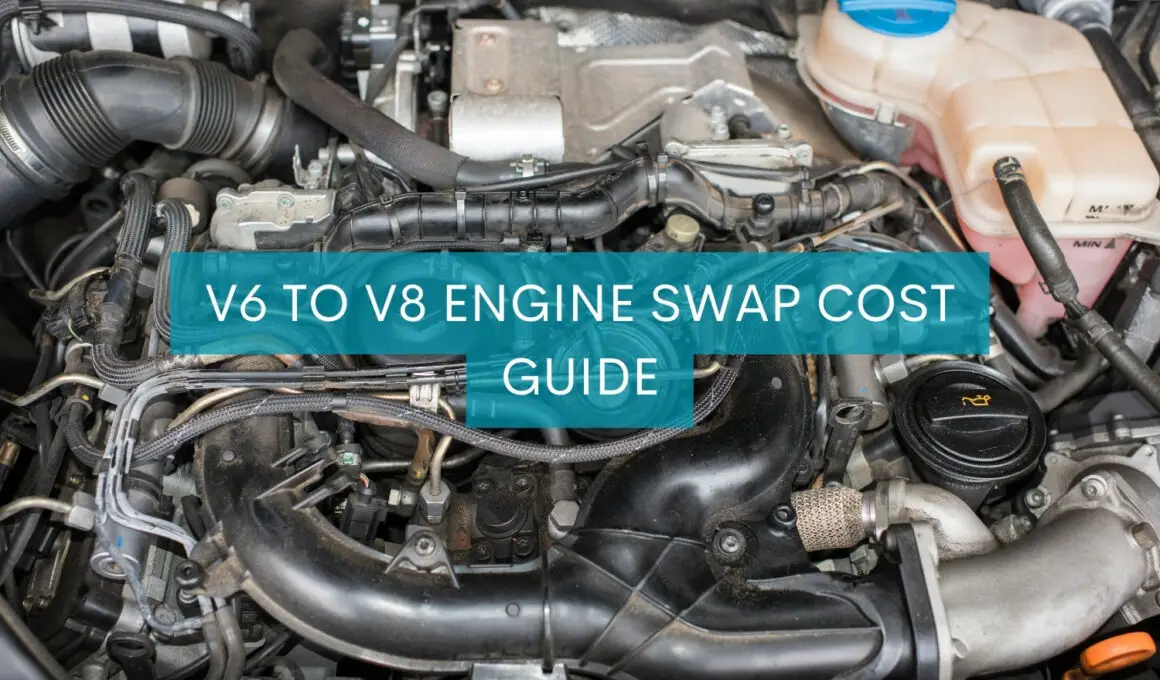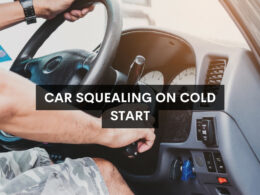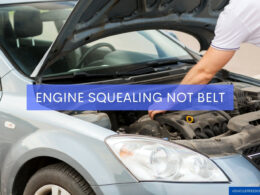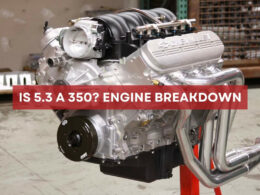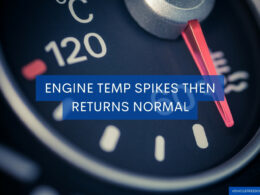In This Article Show
Upgrading from a V6 to a V8 engine might sound like an audacious task, but it’s an exciting prospect for gearheads like us.
Before we go further, it’s essential to clarify some terms that will frequently appear in this post. An engine swap is replacing a car’s existing engine with another.
A V6 and V8 refer to engine configurations where the ‘V’ stands for the layout of the engine cylinders, and the number represents the quantity of cylinders, six for V6, and eight for V8.
Upgrading your car’s engine from a V6 to a V8 is much more than adding two more cylinders. It’s about improving power output, enhancing performance, and, for some, enjoying the satisfaction of modifying their beloved vehicle.
Why Upgrade from a V6 to a V8 Engine?
Over the span of my career, I’ve had countless discussions with car enthusiasts about the merits of a V8 engine over a V6. The reality is, both engines have their own unique advantages and suitability depending on various factors such as the type of vehicle, its use, and personal preferences.
However, in the world of performance and power, a V8 engine often stands out.
With two additional cylinders, V8 engines typically deliver more horsepower and torque than their V6 counterparts. This increased power can improve acceleration and towing capacity, making it a preferred choice for speed enthusiasts and those who need a hefty amount of pulling power for tasks like towing trailers or boats.
Furthermore, the sound of a V8 engine is undeniably distinctive. For many car enthusiasts, the deep, throaty roar of a V8 engine is music to their ears, adding a visceral element to the driving experience that a V6 can’t match.
A practical instance where the V8 engine upgrade made a significant difference is in the Ford Mustang GT. While the standard V6 engine was impressive, the upgrade to a V8 engine in the GT model gave it a substantial power boost, further cementing its status as a true American muscle car.
However, bear in mind that while the power and performance of a V8 engine can be tantalizing, it’s important to consider the overall impact of an engine swap.
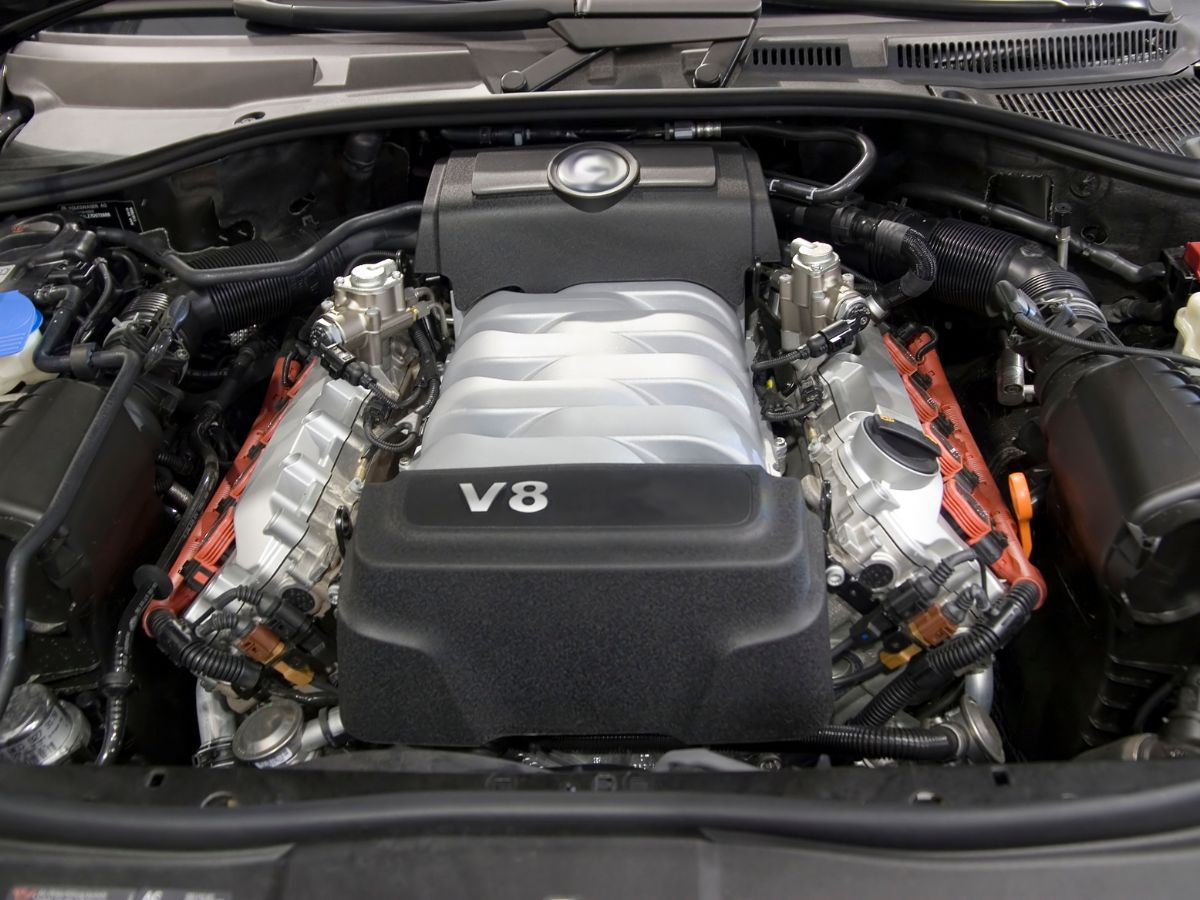
Factors Influencing the Cost of an Engine Swap
Swapping your car’s engine is not a straightforward decision or process, and the costs can vary significantly based on several factors. Let’s break down these considerations:
1. Make and Model of Vehicle
The type of car you’re working on can substantially impact the cost of an engine swap. For instance, upgrading a classic muscle car to a V8 might be less complex and costly than doing the same for a modern sedan due to differences in design and compatibility.
2. Choice of V8 Engine
Choosing between a new, used, or refurbished V8 engine can significantly alter the cost. New engines offer reliability but come with a higher price tag, while used or refurbished engines can be budget-friendly but may require additional maintenance or repairs down the line.
3. Cost of the Engine Itself
V8 engines, particularly high-performance models, can be costly. The price can range from a few thousand dollars to over $10,000, depending on the make and power output of the engine.
4. Labor Costs
Whether you’re handling the swap yourself or hiring a professional significantly affects the cost. While doing it yourself can save labor costs, it requires a high level of expertise and time. On the other hand, professional installation ensures the job is done right but can be quite expensive.
5. Modification and Upgrade Costs
An engine swap isn’t usually a plug-and-play affair. You might need to modify or upgrade other components such as the cooling system, exhaust, transmission, and engine mounts to accommodate the new engine.
6. Legal and Insurance Costs
Depending on where you live, you may need to ensure your vehicle meets certain emissions and safety standards after the swap. Additionally, some insurance companies may change your rates after an engine swap.
Understanding these factors will help you better estimate the cost and effort involved in an engine swap.
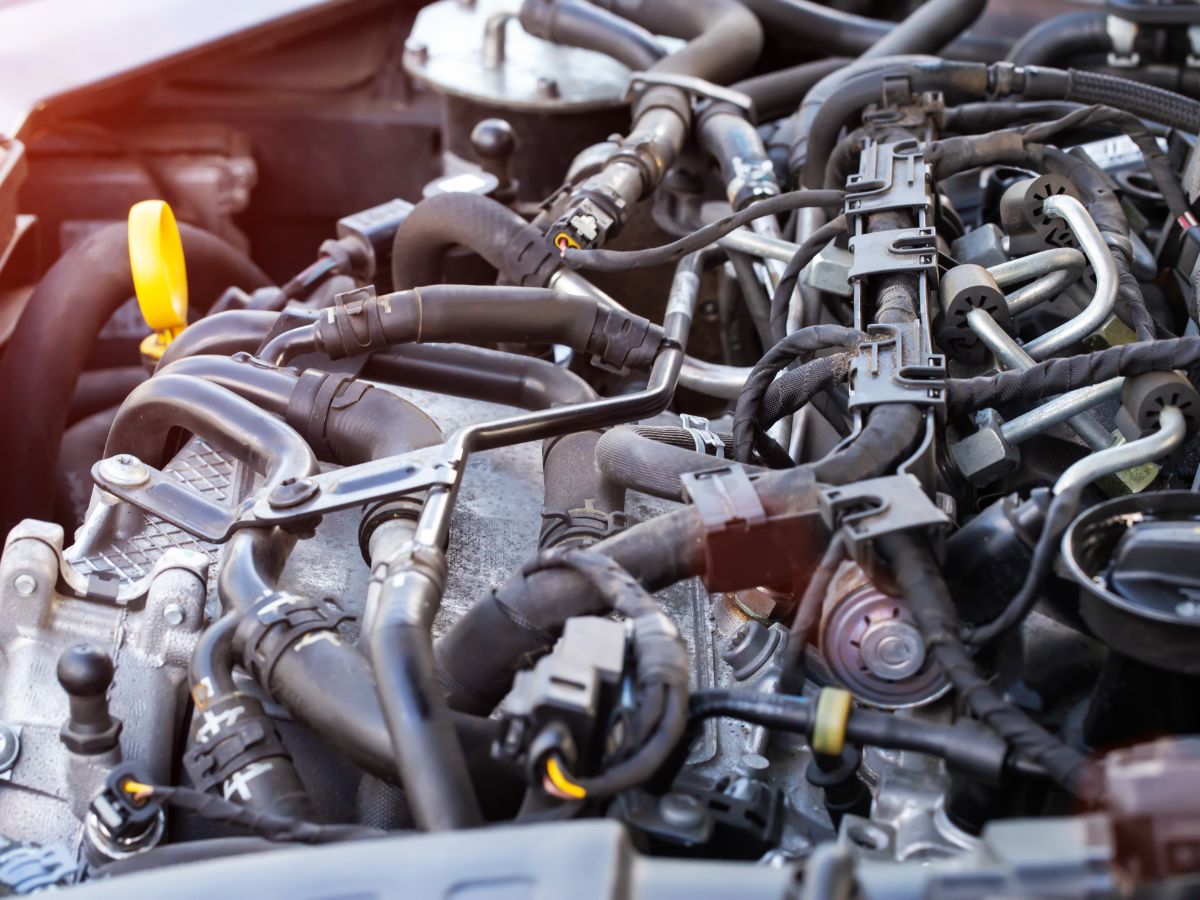
The Costs Broken Down: V6 to V8 Engine Swap
Here’s a more detailed look at the costs involved in swapping your engine from a V6 to a V8, using real-world examples to illustrate these points.
1. Cost of the Engine
A new V8 engine can range from $2,000 to over $10,000. For example, a new 5.0L V8 engine for a Ford Mustang GT can cost around $7,000. On the other hand, you could find a used or refurbished V8 engine for as low as $500, but these often require additional inspections or repairs.
2. Labor Cost
If you’re hiring a professional for the installation, labor costs can range from $50 to $100 per hour, depending on your location and the expertise of the mechanic. A full engine swap could take anywhere from 20 to 50 hours, resulting in labor costs of $1,000 to $5,000.
3. Modification and Upgrade Costs
Additional components that may need replacing or upgrading can add $500 to $2,000 or more to the total cost. For instance, upgrading the transmission to handle the power of the V8 engine can add significant cost. Similarly, modifying the exhaust system or engine mounts to fit the new engine could also add to the expense.
4. Legal and Insurance Costs
Compliance with emissions and safety standards could incur additional costs, particularly if your vehicle requires significant modifications to meet these standards. Moreover, insurance rates may increase after swapping to a more powerful engine.
Altogether, upgrading from a V6 to a V8 engine could cost between $4,000 to over $20,000 when considering all these factors. Remember, these are just general estimates, and the actual cost can vary widely depending on specific circumstances.
Pros and Cons of Engine Swapping: Is It Worth It?
Upgrading your engine from a V6 to a V8 can bring about several benefits, as well as some drawbacks. Here’s a rundown of the main points to consider:
Pros
- Increased Performance: Enhanced performance is the most significant benefit of upgrading to a V8. You’re likely to see a boost in horsepower and torque, leading to improved acceleration and towing capacity.
- Potential Increase in Vehicle Value: Depending on the vehicle type and the engine swap quality, your vehicle’s value may increase with a V8 engine.
- Personal Satisfaction: There’s a distinct pleasure and sense of accomplishment in successfully upgrading and customizing your vehicle, particularly for car enthusiasts.
Cons
- High Cost: As we’ve broken down earlier, the cost of swapping a V6 engine to a V8 can be quite high. This includes the cost of the engine itself, labor, potential modifications, and additional legal and insurance costs.
- Legal Issues: Depending on your local emissions and safety regulations, swapping to a V8 engine could result in legal complications if not properly addressed.
- Insurance Changes: Some insurance companies may increase your premiums if you upgrade to a more powerful engine.
- Impact on Fuel Economy: Generally, V8 engines consume more fuel than V6 engines. This means you may end up paying more at the pump over time.
The decision to upgrade your engine from a V6 to a V8 should be based on careful consideration of these factors. The allure of added performance should be weighed against the potential drawbacks, particularly the cost and legal implications.
Frequently Asked Questions
How long does it take to swap an engine?
The time it takes to swap an engine can vary greatly depending on the specific vehicle and engine, as well as the expertise of the person doing the swap. On average, it can take anywhere from 20 to 50 hours.
Is swapping from a V6 to a V8 bad for my vehicle?
Swapping your engine to a more powerful one like a V8 can put more stress on other components of your vehicle, like the transmission and brakes. It’s essential to ensure these components are upgraded or in good condition to handle the increased power.
Will a V8 swap affect my vehicle’s fuel economy?
Generally, V8 engines consume more fuel than V6 engines, so you should expect a decrease in fuel economy after the swap.
Can I perform an engine swap myself?
Yes, it’s possible to perform an engine swap yourself, but it requires a high level of mechanical knowledge and skill. If you’re not confident, it’s best to hire a professional.
Can engine swapping void my warranty?
Yes, engine swaps can often void your vehicle’s warranty. It’s recommended to check with your vehicle manufacturer or warranty provider before proceeding with an engine swap.
Can any car be swapped to a V8 engine?
Technically, a V8 engine could be fitted into any vehicle with enough space and the correct modifications. However, it’s crucial to ensure the swap is practical, safe, and legal.
Wrapping it up
Engine swapping, specifically upgrading from a V6 to a V8 engine, is a captivating subject for many car enthusiasts. It presents an opportunity to significantly improve a vehicle’s performance and tailor it to the owner’s preferences.
However, it’s crucial to recognize that this endeavor involves much more than simply swapping one engine for another.
The cost, time, and complexity associated with this process can be considerable, involving everything from the selection and procurement of the engine to the physical installation and the possible need for ancillary modifications. Legal and insurance considerations are also important, and the impact on fuel economy cannot be overlooked.
Despite these complexities, the satisfaction of powering your vehicle with a more potent engine and the potential improvement in performance can make an engine swap a worthwhile pursuit for many.






